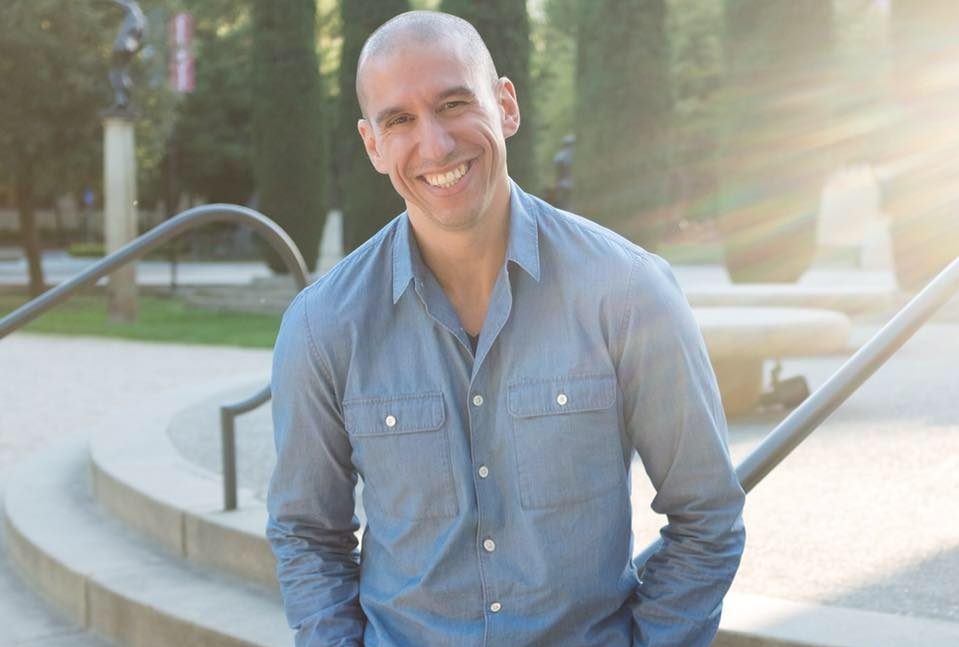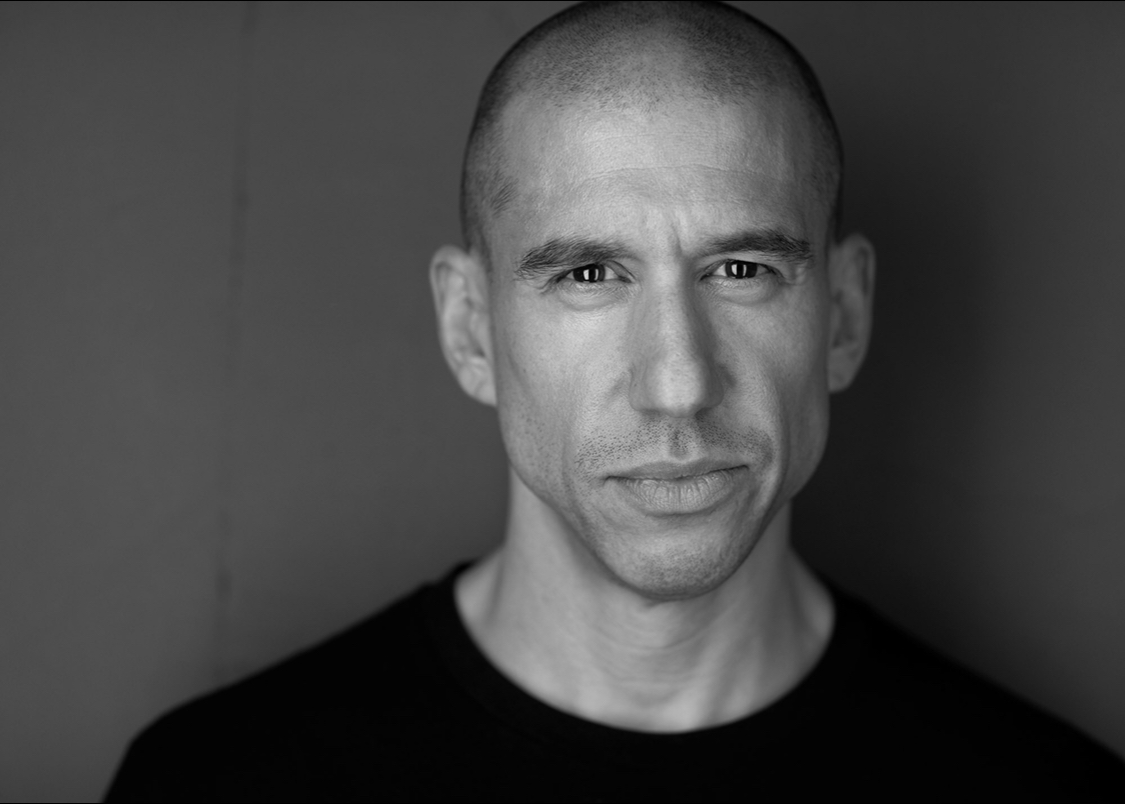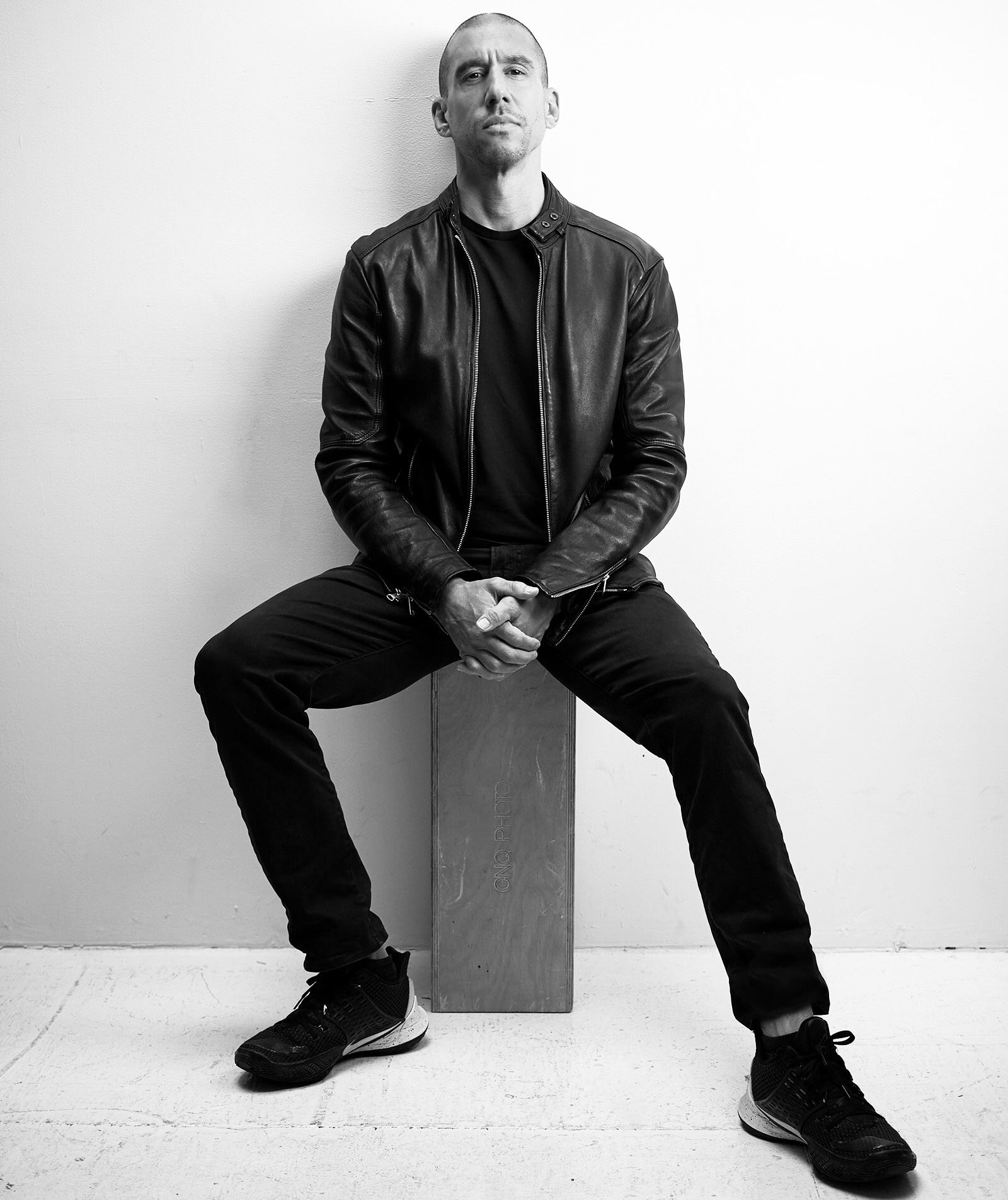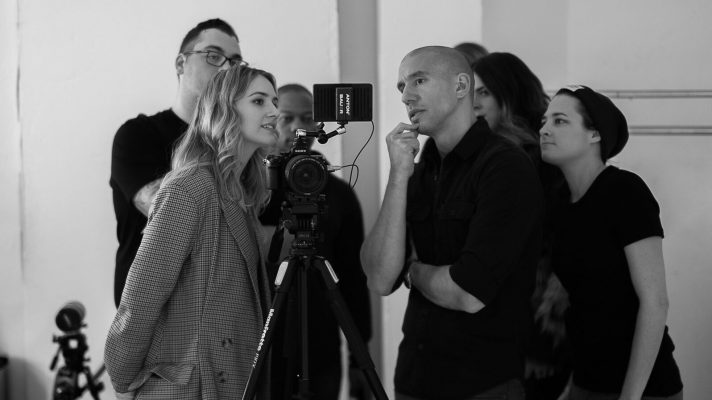Michael Cinquino wears many hats. He is a photographer, an actor, a filmmaker, a leadership and life coach, and a Navy Veteran. We caught up with him while he was isolating at home in New York, to learn about his passions and how his Transcendental Meditation practice has been influencing his life.
In one sentence, what describes your approach to life?
Let go and play.
What are your 3 favorite “tools” for a healthy and happy life?
It’s such a great question, especially for a New Yorker living through a pandemic. I joke that the three things that have gotten me through lockdown are:
1. TM
2. My Bellicon Trampoline
3. Curb Your Enthusiasm & Rao’s Spaghetti sauce
I know that’s technically four but I consume Larry David and Rao’s equally.
For a happy life in general though I would say:
1. TM
2. Exercise (in all its forms)
3. Connection (Nothing is better than in-person, but I’m learning to live with virtual for the time being.)
How long have you been practicing the Transcendental Meditation technique, and what inspired you to learn?
I learned TM in November of 2018, so two years of consistent practice. I have had a lifelong struggle with anxiety. The more I explore it, the more I learn that this was something I was living with as a child, and didn’t even begin to know something called “anxiety” existed until I was out of the Navy at 22 years old. I had tried everything. Yes, everything. Drinking, not drinking, exercise, not exercising, dieting, 15 years of therapy, yoga, other types of breathing and meditation, and I still continued to suffer. TM was kind of the last shot to help me with that struggle. P.S. I don’t suffer from anxiety anymore. Here and there there’s a minute or twinge, but nothing that affects the quality of my life like it used to.
Is there an experience related to your TM practice that stands out in your mind?
OH, YES. If I had to pick one I would say this: Very soon after practicing TM, I was able to step back from my thoughts in day-to-day life. That is, I realized that I am not my thoughts and my thoughts are not me. I also realized how confining thoughts can be. For someone with anxiety, that voice in my head rarely speaks kindly to me. Now I’m able to let it go and realize it has nothing to do with me. I’m able to live more in awareness and in the moment and far less in my head. I never realized it was about letting go, and it’s ALL about letting go.

What are you passionate about?
I’m wildly passionate about moving and inspiring others to get out of their head and into the moment, expressing themselves freely and boldly. Most of my business and creative endeavors revolve around this passion. You’ll find me spending the majority of my time in front of or behind a camera. I’ve been a professional photographer for over a decade here in New York as well as an on and off performer. I also have been working as a public speaking/leadership development coach for the last five years or so. Most recently, I’ve ventured into life coaching using what I’ve learned as a photographer and performer to help others get out of their own way in their day-to-day lives. I’m really psyched about this and excited to see where this leads.
You have theater and acting degrees; how did you end up landing on photography?
I spent seven years studying performance. I hold a B.A. in Acting & Directing and then did 3 years of conservatory training graduating with an M.F.A. in acting. As soon as I finished graduate school, I had my first apartment in NYC two weeks later. After about four years or so of pursuing a career in acting, someone gifted me a Nikon D70 digital camera, and I took a sharp left turn and wound up being a professional photographer. It was never anything that was even remotely in the back of my mind. It’s one of those things that took me for a ride, and I went with it.
Can you talk about the biggest successes and failures you’ve experienced? What did you learn from them?
For the instances in my life where I’ve had the courage to close a door before another one opened, I would call all of those successes. There’s usually always a freaking out moment (or period) when I realize I can’t go back and ask myself, “What did I just do?” But if I keep doing all I can with what I have, from where I’m at, another door always opens. I consider it a success every time I dare to get out of my comfort zone, and a failure every time I choose to stay comfortable. Acting is something that, I feel, will forever challenge my comfort zone, which is why you’ll find me in acting class every week, even when I’m not actually pursuing a career. I’ve learned that I only regret not taking this risk and holding onto what I think should be.
Do you see yourself as somebody who took a leap of faith to live a more creative life or do you think it kind of just happened?
I think it was 50/50. While acting and photography both found me, the continued commitment to a creative life is an every-day leap of faith.

What was your perception of meditation in general before you learned the TM technique? Did that perception change after your first few experiences meditating?
I never really “got” meditation before I started practicing TM. I thought it was about not having thoughts. That perception totally changed after my first experiences of TM because my teacher let me know that thoughts were a part of meditation and the point was not to try and force thoughts out of your head.
We have had a lot of veterans speak about how the TM technique has helped them. If you feel it is relevant, can you speak about your experience as a Navy Veteran?
I spent four years in the US Navy on active duty, assigned to the USS Detroit. My transition from military back to civilian life was one of the most challenging times in my life. I was so crippled by my anxiety, I didn’t want to leave my house. If I had learned TM at that time, I can guarantee I would not have suffered as I did. Most people who have never served in the high-stakes life or death environment of the US Military don’t know what it means to have to suck it up, no matter what, and accomplish the mission. We’re unique in that way. The issue is that the mindset it can take to live in that world isn’t always the healthiest for civilian life, and it can be really hard to unwind and reintegrate into the world. I feel like every veteran could benefit from a consistent TM practice and would love to see it being offered to all veterans as part of the standard transition assistance.

Do you feel that the TM technique has helped you accomplish your goals? If so, how?
Yes. Because it’s a twice-a-day reminder to let go. The most blissful meditations I have are the ones that I am reminded to go into it with zero expectations of how it should go. I feel this runs a direct parallel to life. When I:
1. Know my outcome
2. Do all I can, with what I have, from where I’m at, to move in that direction
3. Let go of how it comes to pass
This is when the magic happens.
If you could give a person one piece of advice when thinking about pursuing a life/career like yours, what would you tell them?
Let go and play.




